Hauke Harder
Composition
Installations
Films
Alvin Lucier
Furthermore
Contact
BEATS (1994) Two stable sine wave generators create a perfect 7:4 sept. A second pair of less stable oscillators is tuned as close as possible to these frequencies but due to the imperfection slow beatings are created which create a permanently changing rhythmical structure. One of the pitches is tuned to a room resonance. Photo: Spiegelgrotte Museumsberg, Klangraum Flensburg, 2007 | 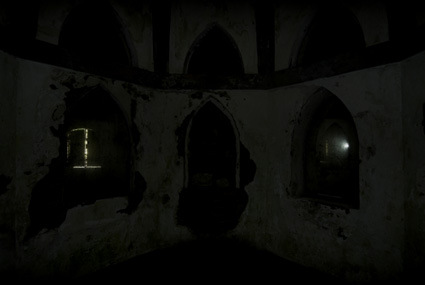 |
GRIGIO UNO (1996) By modulation of a low sine wave and acoustical closed circuit the harmonic spectrum of a bass speaker (normally not audible) can be clearly heard and "analyzed" by the resulting rhythmical structure. Photo: Punto e basta, Stadtgalerie Kiel, 1996 | 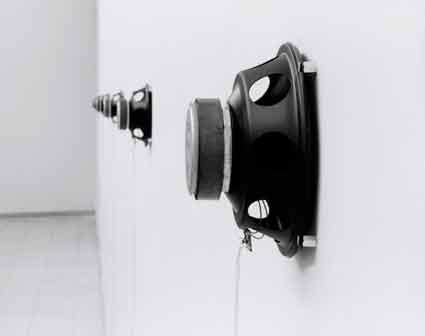 |
GRIGIO DUE (1998) one modulated and one unmodulated sine wave form a major second (ratio 9:8) creating overtone spectra (as in GRIGIO UNO) and ringmodulation spectra. Photo: Galerie escale, Düsseldorf, 1999 | 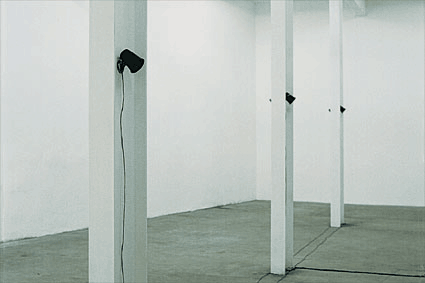 |
7:6 (2001) A minor third (ratio 7:6) created with sine waves sounds from two metal sheets and is modulated. Photo: Stadtgalerie Kiel, 2002 | 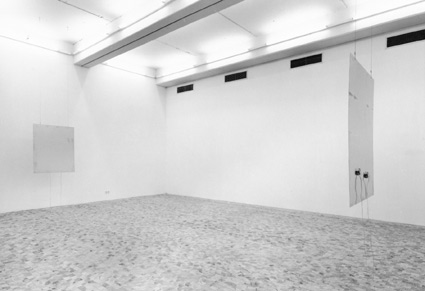 |
SCHÜDDELN (2007) A chord with ratios 6:7:9 created with sine waves and transducers sounds from four metal cups and is modulated due to very slow beatings. Photo: Museumsberg, Klangraum Flensburg, 2007 | 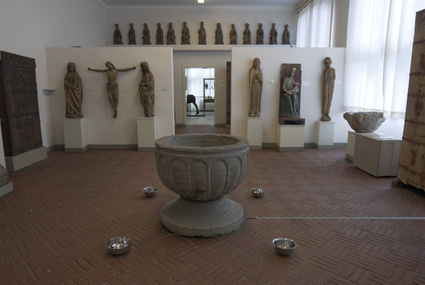 |
GRIGIO TRE (2008) Extended,variable version of GRIGIO DUE using chords with ratios as 6:7:9. Photo: Stadtgalerie Saarbrücken, 2009 | 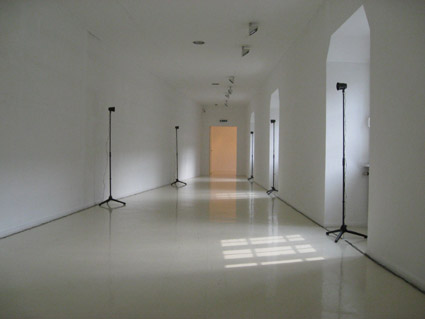 |
SAMMER. HEINRICH, FREUND (1998) Site specific, Streetlevel, Dresden, 1998 |  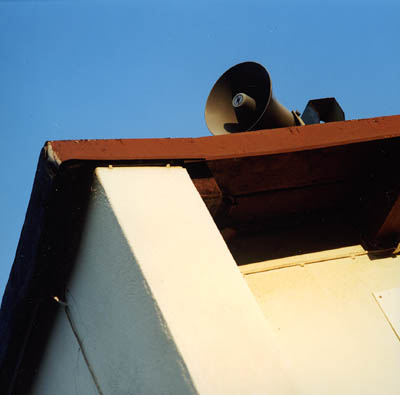 |